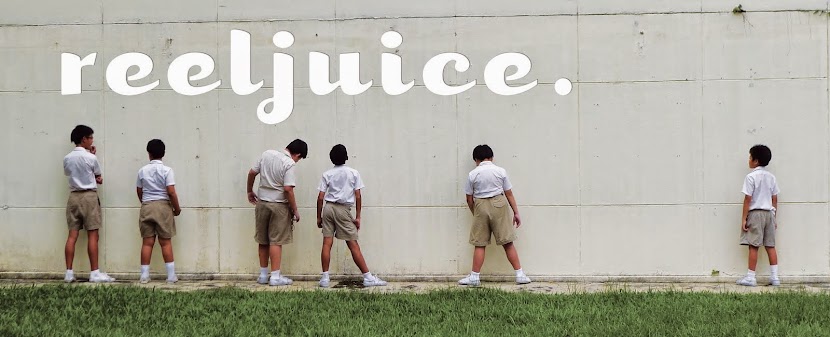A little background on this article, 'Director with a heart to teach' (ST, April 4 2017)
I haven't been well the last few months. I think my body succumbed to the rigours of my work in production and I had to be warded for more than 3 weeks at NUH for treatment. In the midst of all these madness, my commitment to ciNE65 as one of the judges (and a commissioned film) casts its weight on top of all the other professional commitments. The folks at ciNE65 and writer Boon Chan (ST) have been kind enough to delay the interview due to my medical condition. This interview was conducted about two weeks after I was discharged. Fortunately, my mind was clear enough not to be affected by the chemicals in the medicines. I think I sounded coherent enough for Boon Chan 😅
The photo was taken before I was warded.
8QIn his new short film, The Usual, local film-maker Sanif Olek got to direct Singapore's Defence Minister, Dr Ng Eng Hen.
He says: "Everyone on set was quite tense because this is the Defence Minister coming on set. I was star struck for five seconds and then I just focused on the directing and the story."
The four-minute work is about a national serviceman who visits his childhood Indian barber for a haircut and Dr Ng has a post-credits cameo as a customer.
It was commissioned for the fourth edition of ciNE65, a biennial local short film competition organised by Nexus, a department of the Ministry of Defence responsible for total defence and national education.
The theme this year is Home•Truly and the deadline for the submission of entries is April 17.
There was one wide shot which needed three takes as curious passers-by were caught on film peering inside the barbershop.
On that third take, Dr Ng asked if it was the last take.
Sanif, 47, says with a laugh: "That was like quite stressful lah."
The television producer and director was among Ngee Ann Polytechnic's pioneer batch of diploma graduates in Film, Sound & Video in 1996. He later received his degree in media and communications from Murdoch University in Perth in 2002.
His debut feature, Sayang Disayang (Lover Is Loved), about a crotchety widower and his live-in nurse from Aceh, was chosen in 2014 as Singapore's entry to the Oscars' Best Foreign Language Film category.
He is also one of four home- grown film-makers commissioned by the Ministry of Communications and Information to each make a short film exploring local-foreigner relations and issues of social integration. The anthology, called Together Apart, will be released tomorrow.
1 What is the importance of short film competitions?Amateurs still have the idea that film-making is an expensive process and wonder if they need to buy a camera and lights and other equipment. This thought hinders that very first step to making a short film. But you don't need to have fancy equipment. You can even shoot some decent stuff on your smartphone. Competitions encourage people to cross that hurdle.
2 You've been involved with the contest from the first edition as judge or mentor. How has the quality of entries changed over the years?Over the years of the ciNE65 competition, production values have improved. There is a better sense of mise-en-scene, with shots properly framed and composed.In the first edition, there was hardselling of the message of national identity, but it has become more subtle.
3 What advice would you give to those taking part?
Many entries focus on the technicality of a shot, such as the tracking and lighting and they forget that ultimately, people want to know what your story is all about. It sounds cliched, but story is king.My advice is to spend some time on the story. From my experience, you can shoot a short film in one or two days, so focus more on the writing.
4 What qualities do you look for as a judge?
I am looking for a connection in the narrative that moves me.The story can be flashy or simple, but the third act is the most important as it shows whether film- makers have that storytelling capability.
5 Why do you take part in competitions such as ciNE65 as a judge and mentor?
It's my way of giving back to the community. There's this Malay saying "kalau tak kita siapa", which literally means "if not us, who else".
6 What do you learn from these events?
Sometimes when you are in your own world, you think a certain way. But when I see all these entries, I get to find out what people out there are thinking, whether their storytelling techniques have changed or whether they are imitating certain Hollywood or European film-makers. It's part of my growth as a film-maker as well.
7 What are you currently working on?
I'm at the writing stage for a few film concepts and I hope to go into production by the end of this year.
8 How would you like to be remembered?
My films revolve around the Malay community and the issues that need to be addressed.For example, Sayang Disayang touched on filial piety. These days, a lot of Malay families ignore their parents. I would like to be remembered as someone who made people think about issues with my films.


No comments:
Post a Comment